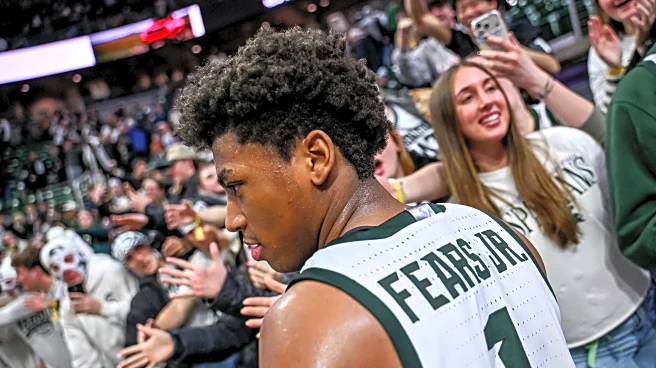Rapid Read • 8 min read
A zoo in Aalborg, Denmark, has issued a request for donations of small pets to be used as food for its captive predators. The zoo aims to replicate the natural food chain for the animals housed there, emphasizing animal welfare and professional integrity. The zoo has assured that donated pets will be euthanized humanely by trained staff. The initiative targets animals such as guinea pigs, rabbits, and chickens, which, after euthanasia, will serve as fodder for the zoo's predators. This approach is intended to prevent waste and promote natural behavior, nutrition, and well-being among the zoo's carnivorous inhabitants. The zoo's online appeal includes a picture of a wildcat and a link to their website, where they also express interest in receiving horses.
AD
This initiative by the Aalborg zoo highlights a unique approach to animal care within captive environments, aiming to enhance the welfare of predators by providing them with a diet that mimics their natural feeding habits. The program could set a precedent for other zoos worldwide, potentially influencing how captive animals are fed and cared for. It raises ethical questions about the use of pets as food and the implications for pet owners considering donation. The zoo's approach may also impact public perception of zoos and their role in animal conservation and welfare, potentially sparking debate among animal rights groups and the general public.
The zoo's request for pet donations may lead to increased scrutiny from animal rights organizations and the public, who may question the ethics of using pets as food for predators. The zoo might need to address concerns and provide further transparency about the euthanasia process and the welfare of both the donated pets and the predators. Additionally, other zoos may observe the outcomes of this initiative and consider similar programs, potentially leading to broader discussions on animal feeding practices in captivity.
The zoo's initiative could prompt discussions on the ethical treatment of animals in captivity and the responsibilities of zoos in maintaining natural behaviors among their inhabitants. It may also lead to a reevaluation of how zoos source food for carnivorous animals, potentially encouraging more sustainable and ethical practices. Furthermore, this development might influence public attitudes towards pet ownership and the responsibilities involved in caring for animals.
AD
More Stories You Might Enjoy











